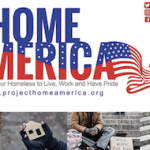“The Court appreciates the work of Orange County Sheriff Don Barnes in promptly examining and seeking to address the death toll of homeless individuals in Orange County,” Carter wrote in his court filing. The judge then asked the sheriff-coroner to provide all the causes of death for homeless people in Orange County since the beginning of last year, calling it an “emergency request.”
“In light of ongoing [lawsuit] settlement negotiations and to understand the nature of the public health crisis in the County leading to the deaths of hundreds of people experiencing homelessness, the Court REQUESTS that the Orange County Sheriff’s Department provide the causes of death of the homeless individuals who passed away in Orange County in 2018 and 2019. The Sheriff’s earliest attention to this Request is appreciated.”
“Over the course of 2018, at least the following 257 homeless individuals died in Orange County,” Carter wrote, before listing the full names of people who died, which comprises most of the judge’s four-page document.
Carter attributed his source for the names to Voice of OC opinion articles by Catholic priest Dennis Kriz, who wrote the names were gathered from coroner records and nonprofits that work with homeless people.
Sheriff officials were working Thursday afternoon on finalizing the homeless deaths data for Carter and will be providing that information to the court, said sheriff’s spokeswoman Carrie Braun.
Growing Attention to Deaths
In the weeks leading up to his court filing, Carter expressed concern to officials about the growing number of homeless deaths, according to people close to the conversations. The scale of deaths drew public attention in December in news reports as well as coroner data publicized by advocates.
Coroner officials previously provided a database of homeless deaths to Voice of OC in mid-December 2018, covering almost the entire year.
The coroner data show at least 11 homeless people were killed by other people, including seven by police: six were shot by police and one died from cardiac arrest while fighting with officers, according to the data. At least 12 homeless people committed suicide, and at least 39 homeless people died from overdosing on alcohol, drugs, or both.
“Just look at how many people have committed suicide so far. And mental health [issues] in general [are] really prevalent and we really have to offer more services,” said Paul Leon, president and CEO of the nonprofit homeless service provider Illumination Foundation.
There likely are more homeless deaths beyond what’s reported in the coroner data, because certain deaths are not reported to county coroners in California.
Coroners are not informed of deaths of people who died under the care of doctors in hospitals, according to county officials. Those deaths, however, are reported on death certificates that go to the county Health Care Agency, county Clerk-Recorder’s Office and state officials. But that data was not immediately available Thursday.
Leon said Carter regularly shows up at various shelters and other meetings about homeless issues.
“He’s almost like a pitbull. He shows up everywhere,” Leon said.
“All of a sudden Judge Carter was there wanting to know why…it keeps you on your toes,” Leon added. “He sat down and asked me like 100 questions and our staff (about the shelters and services). I’ve seen him ask cities that, I’ve seen him ask [county] Health Care Agency [officials] that, CalOptima…so we kinda learned that if he’s going to show up, you better have answers. He doesn’t take ‘I don’t know’ for an answer.”
Problems Reported With Getting into Shelters
Officials and advocates have given conflicting accounts in recent days as to whether homeless people actually can get a bed at shelters unless they’re referred by police, county health officials, or outreach contractors with City Net.
The new shelters that have come online in Santa Ana and Anaheim in recent months are full and not allowing homeless people to stay there unless they’re referred by police, according to Brooke Weitzman, one of the lead lawyers for homeless people in the main federal lawsuit.
“There aren’t actually any beds open that I know of other than the armory. It is my understanding that even Santa Ana and Anaheim are not taking referrals right now other than from police because they are full. But, sometimes if they qualify for something medical, or transitional, we can come up with a place that will take them,” Weitzman told Voice of OC in an email Wednesday.
February shelter data provided by the County Wednesday showed an average of 415 people slept at the Courtyard shelter in Downtown Santa Ana each night. Bridges at Kraemer place in Anaheim had an average of 192 people, the Santa Ana armory had an average of 85 and the Fullerton armory had an average of 67.
Carter has criticized the amount of people sleeping at The Courtyard in the past and said he thinks the limit should be 380 people.
“Many individuals who have significant mental disabilities and have suffered past trauma destabilize when placed in one room together with so many hundreds of other people,” Carter wrote in a March 2018 court filing.
Homeless people shouldn’t be arrested for breaking anti-camping and loitering laws unless they’re refusing an offer from outreach workers of an available shelter bed, Carter has said, citing a higher court ruling that binds him under court precedent rules.
“If they cannot offer someone an immediately available and appropriate bed, it would certainly be unconstitutional to do any enforcement,” Weitzman said.
Anaheim is enforcing its anti-camping laws after recently opening two shelters: a 200-bed shelter opened Dec. 20 near Angel Stadium, and a 224-bed shelter opened Feb. 1 at the Salvation Army on Lewis Street near Ball Road.
“Those [anti-camping and loitering] sections of the Anaheim Municipal Code remain in effect. Under our settlement, we are required to have 325 shelter beds, and we actually have 424 as of today,” Anaheim spokesman Mike Lyster wrote in an email last Thursday, Feb. 14.
“Our first approach, as always, is to offer shelter and resources. In a case where someone is clearly breaking the law and turns down offers of help, they could face enforcement,” Lyster said. “In all of our recent encampment clearings, there have been no citations or arrests for camping, loitering or public property storage. Any arrests or citations were for warrants or criminal violations.”
Some advocates claim homeless people haven’t been able to get into the shelters and are stranded on the streets.
Homeless people are “being told there’s a long [wait] list and we don’t have beds for you right now. And when the homeless go to CityNet and are told ‘we don’t have any beds for two weeks’…they’re being turned down,” said homeless advocate Heidi Zimmerman.
Leon, who runs the 200-bed interim shelter near Angel Stadium, said the shelter takes everyone who first goes through a referral process from City Net, the OC Healthcare Agency or the Anaheim Police Department.
“The Salvation Army is taking some, we’re taking some…so if somebody wants to come in, then they can come in, it’s not closed to anybody,” Leon said. “We haven’t heard of anybody saying ‘I’m trying to get into a shelter, I can’t come in.’ ”
Emergency Meeting Planned on Homeless Health Services
CalOptima, the county’s $3.4 billion federally-funded health plan for low income and elderly residents, scheduled a special meeting for Friday afternoon to “Consider Authorizing Actions Related to Homeless Health Care Delivery Including, but not limited to, Funding and Provider Contracting.”
The move comes after Carter reportedly met with top CalOptima executives in recent days and expressed frustration about shortcomings in homeless health care, according to a person with knowledge of the meeting. CalOptima CEO Michael Schrader didn’t return a voicemail message Thursday asking about the meeting.
Members of the public will have an opportunity to speak at the 3:30 p.m. meeting, as required under the state’s open meetings laws.
Death Near New Shelter Prompts Debate
A homeless man jumped in front of a train in Anaheim Feb. 15 and was killed near the recently opened Salvation Army homeless shelter, sparking debate between public officials, homeless service providers and homeless advocates over the city’s shelter program. The man’s name has not been released.
“A gentleman … took his own life on Friday by jumping in front of a train,” homeless advocate Jeanine Robbins told the Anaheim City Council at their meeting Tuesday. “Where were the services in Anaheim Way [the shelter near Angel Stadium] to help him cope with his mental illness? They were nonexistent. Let’s all be honest here, Anaheim Way, built as fast as it was, simply acted and continues to act as a holding tank.”
Lyster said, in a Friday morning phone interview, the man’s death was “unrelated to any operational issues or treatment at the shelter.”
“As for the incident on Friday, I can tell you this is a tragic, heartbreaking incident in which somebody took their own life,” Lyster said during the City Council’s regularly-scheduled homelessness update Tuesday.
“Any assertion that this person was mistreated or that there were any operational issues at either the interim shelter or the Salvation Army are unfounded. This is a tragic and heartbreaking incident and any attempt to make anything more out of it, I’m afraid, does a disservice to what was a very honorable man and a family that is now grieving over a lost loved one,” Lyster said.
Leon, who runs the shelter near Angel Stadium, said the man had stayed at the shelter and the Illumination Foundation staff didn’t get to work with him on any potential mental health issues for long.
“He definitely stayed in our shelter, however mental health illness takes a little while. He wasn’t with us that long, we had a little interaction, but normally it takes two to three months…It takes a few months to get people to sit down and talk to you. Again, we don’t even know all the ramifications with him because we didn’t have a lot of interactions with him,“ Leon said Thursday.
Leon said he couldn’t get into details about the man because of medical privacy law concerns, but the county needs to beef up mental health services.
“I think advocates are quick to point a finger, but it’s not Salvation Army’s fault,” Leon said. “It’s a community problem: do we need more mental health services? Absolutely. Do we need more places to provide mental health services? Absolutely.”
Leon said the Illumination Foundation does work with advocates.
“We do have advocates come in and say, ‘Hey, what about this’ and make suggestions and we always take it to heart. There are a lot of good advocates that do understand,” he said.
This story was updated to include a quote from Anaheim spokesman Mike Lyster.
Spencer Custodio is a Voice of OC staff reporter. You can reach him at scustodio@voiceofoc.org. Follow him on Twitter @SpencerCustodio.
Nick Gerda covers county government and Santa Ana for Voice of OC. You can contact him at ngerda@voiceofoc.org.







